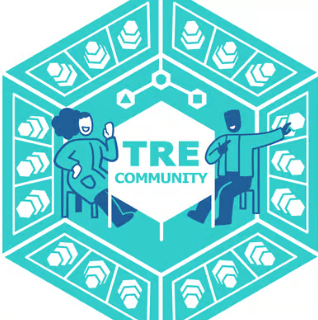Blogs & News
Aridhia Attends UK Trusted Research Environment Annual Meeting
On September 2, 2024, the UK Trusted Research Environment (TRE) Community Annual Meeting brought together key stakeholders across the digital science landscape. Themed “Accelerating Secure Digital Science through Community Collaboration,” the event was a vibrant mix of keynote speeches, breakout sessions, and lightning talks. I attended the event alongside my colleagues Scott Russell and Ross Stiven, and we were able to connect with a diverse group of participants, including researchers, data scientists, TRE developers, and funders like HDR UK and DARE UK.
Federation and Standardisation
The meeting provided an excellent opportunity to engage with the UK TRE community, which is dedicated to advancing secure and trusted environments for research. A major topic of interest was the evolution of federated research environments. At Aridhia, we are heavily focused on the concept of federation within our Digital Research Environment (DRE) platform. Our involvement in the PHEMS project and the development of the open-source Federated Node (FN) have been significant milestones in this area. Seeing how the UK TRE Community is approaching federation, and engaging in conversations about the direction this work is heading, was both valuable and encouraging.
 We found the discussion on open standards of particular interest. Standardisation is key to creating interoperable systems that can scale across different organisations and use cases. At Aridhia, we prioritise open standards to ensure we are contributing to a broader ecosystem. FAIR catalogues are based on the W3C DCAT standard, Workspaces have access to open-source tools such as R Development Environment and Jupyter Notebooks and each have a dedicated Gitea environment for version management of code and assets. Another key standard is the OMOP CDM—now promoted by the NHS SDE Network, who were also in attendance. OMOP CDM has been integral to many of our customer projects over the past few years, particularly in helping them transform and standardise their data for federation projects. It was exciting to hear how these standards are evolving and how the UK TRE Community Standards Working Group plans to push these efforts forward.
We found the discussion on open standards of particular interest. Standardisation is key to creating interoperable systems that can scale across different organisations and use cases. At Aridhia, we prioritise open standards to ensure we are contributing to a broader ecosystem. FAIR catalogues are based on the W3C DCAT standard, Workspaces have access to open-source tools such as R Development Environment and Jupyter Notebooks and each have a dedicated Gitea environment for version management of code and assets. Another key standard is the OMOP CDM—now promoted by the NHS SDE Network, who were also in attendance. OMOP CDM has been integral to many of our customer projects over the past few years, particularly in helping them transform and standardise their data for federation projects. It was exciting to hear how these standards are evolving and how the UK TRE Community Standards Working Group plans to push these efforts forward.
SATRE and the language of a TRE
Another key discussion revolved around the SATRE framework. The framework, which aims to provide guidelines and benchmarks for trusted research environments, was referenced multiple times throughout the day. There were also discussions about SATRE’s long-term ambition to evolve into an accreditation body. Given the limited funding, it remains to be seen how this will unfold, but it’s an exciting development to follow. We were pleased to have our own SATRE blog series mentioned as a positive example of scoring a TRE (specifically, the Aridhia DRE) against the SATRE framework. This recognition highlights our ongoing commitment to meeting and exceeding industry standards for trusted research environments.
A significant takeaway from the event was the importance of creating a shared language within the community. The TRE Terminology/Glossary Working Group aims to address this by developing a common set of definitions and terminologies for concepts such as federation and Trusted Research Environments. Given the prevalence of acronyms and complex terms in the digital research space, this effort will be invaluable in reducing confusion and ensuring that everyone is on the same page.
The UK TRE Community Annual Meeting was a fantastic opportunity to learn, share, and engage with others in the field. At Aridhia, we are looking forward to participating in future events and contributing to working groups. As the Trusted Research Environment landscape evolves, we remain committed to playing a role in shaping its future by focusing on collaboration, innovation, and the adoption of open standards and tools.
The Aridhia Trusted Research Environment Platform
Learn more about the Aridhia Trusted Research Environment platform and how it can fit into your next research project or read our guide to Trusted Research Environments
September 13, 2024
Alicia Gibson
Alicia Gibson joined Aridhia in 2018 and serves as the Chief Project Officer. With over 25 years of experience Alicia is a seasoned leader in project and operational management. With a wealth of experience in both internal and customer-facing projects she excels in aligning projects with the company’s vision. Alicia also leads the Customer Data Engineering team ensuring alignment with customer’s data engineering and data science needs and expectations. Prior to joining Aridhia Alicia worked at multiple Fortune 500 companies mainly in the technology sector and also joined an early-stage software startup. Alicia is a certified Project Manager and holds an MBA.
